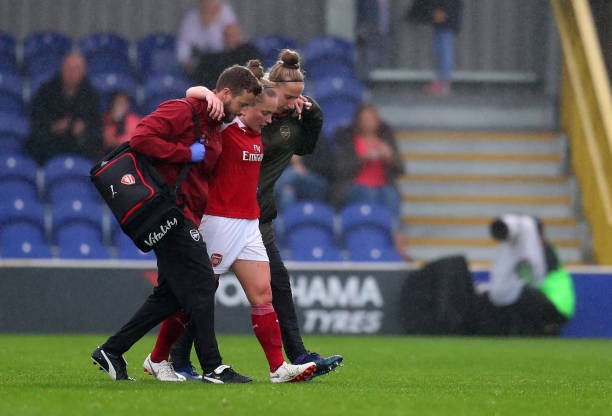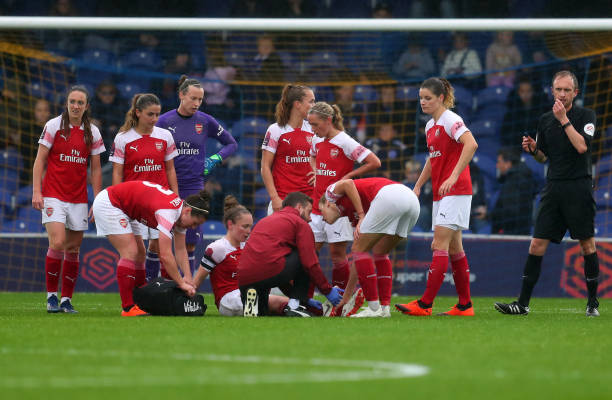The FA have finally started to address one of the biggest refereeing problems in Women’s football – the leniency in applying Law 12 and the protection of players’ physical integrity.

In a letter from David Elleray, the chairman of the FA Referees’ Committee, new instructions were given to the referees. I believe they were well followed last weekend on the FA WSL and FA WC pitches as I noticed an increase in bookings from social media posts and match reports.
“It was pleasing to note that club marks indicate a small increase in the standard of refereeing when compared with last season, but it was also apparent that a number of stakeholders (clubs, spectators, players) in the women’s professional game believe that improvements are required in the levels of detection and disciplinary sanctions relating to reckless and serious foul challenges to ensure that players are protected from injury-threatening unfair challenges – this requires referees (supported by their on-field colleagues) to deal fairly but strictly with challenges which exceed what is permissible,” the letter said.
This is very welcomed news as many poor incidents have been recorded this season. Players like Kim Little, Paula Howells, and Leah Galton have been victims of dangerous tackles/serious foul plays resulting in serious injury lay-offs, some of which required an operation to repair the damage caused by opposition players.
Punishments have also been extremely lenient, in those three cases especially, and there was no suspension imposed on the culprits. I think this is a great move by the FA to tackle a persistent problem in women’s football.
The letter also asks referees to clamp down on incidents with club officials and, again it is another needed move to protect referees from the abuse they get on the pitch.
They face abuse from players and managers during games. They also get it from the fans but it is up to the clubs to stamp out this problem.
“In line with the unanimous desire to improve the overall on-field environment in the two divisions, referees must report incidents where the conduct of clubs officials (especially those in the technical area) falls below the standards expected of professional leagues, including if their actions breach competition rules,” the letter continued.
At the end of the day, every team has a different way of playing football and those different philosophies make the game interesting. If all the teams were playing a Guardiola-style football it would be boring. Same if all teams were using the good old ‘get-stuck in’ mentality and tactics.
Teams should be allowed to use physical play as long as it stays within the Laws of the Game.
But things have gone beyond that in recent years in women’s football, so it is excellent news to hear the FA is finally acting to solve that problem.

